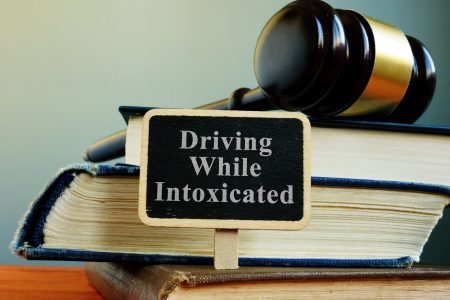What Is an Aggravated DWI New York State? - Dispatch Weekly
June 6, 2020 - Reading time: 10 minutes

Being charged with aggravated DWI can severely impact your life. It can be embarrassing, time-consuming, and expensive. This law encompasses more complex DWI rules, which would warrant the help of an experienced DWI lawyer. So, what is an aggravated DWI, and how is it different from regular DWI?
In this post, you’ll learn more about aggravated DWI in New York State.
What Is an Aggravated DWI?
This new law was created in January 2007, which is a new category of driving while intoxicated (DWI). It’s considered a serious offence that comes with severe punishment, including new plea-bargaining restrictions and stricter penalties. If you or your loved one has been convicted with an aggravated DWI, it’s crucial to consult a lawyer, so check here for more details.
What Is the Difference Between Regular DWI and Aggravated DWI?
Both charges involve the use of alcohol, cannabis, or other illicit substances, which may violate traffic laws, car accidents, or other road problems. As compared to regular DWI, an aggravated DWI is more serious because prosecutors have limited ability to plea bargain.
What Are the General Aggravated DWI Punishments?
DWI or DUI punishments vary from one state to another, and they’re all serious. The punishment will also depend on the specific nature of the case and prior record.

Here’s a summary of possible DWI penalties:
- Revocation of driver’s license
- Substantial fines
- Seizure of vehicle
- A lengthy jail sentences
- Community service and probation
- Increased car insurance premiums
- Denial of insurance coverage
- A felony or misdemeanour conviction
- Alcohol education classes (mandatory)
- Car ignition interlock system installation
- Civil liability for property damage or any bodily injury caused
- A possible homicide, manslaughter, or murder conviction
What Are the Penalties of Aggravated DWI in New York State?
A person who has been arrested and convicted of an Aggravated DWI or VTL 1192.2(2-a) code in New York will sustain the following possible penalties:
- Up to three years’ probation
- Up to one-year imprisonment
- A fine of $1,000 to $2,500
- Revocation of license for one year
- A Victim Impact Panel attendance
- Non-criminal penalties, like $395 court surcharge or a $250 per year DMV assessment
Previous Convictions Affect Future DWI Charges
Prior alcohol-related offences can affect your future DWI charges. A Felony Aggravated DWI is usually charged to a driver who is charged another Aggravated DWI offence within ten years for an alcohol-related offence.
The felony DWI charge is more serious, which can result in harsher penalties upon conviction than regular and aggravated DWI. The “Class” of Felony that is charged to a convicted individual highly depends on the number of previous convictions. With the Felony Aggravated DWI, it’s a repeat offender charge, punishing drivers who repeatedly commit alcohol-related offences.
The possible charge penalties for a person convicted of a second Aggravated DWI include the following:
- Up to four years in jail
- Up to three years’ probation
- A fine of $1,000 to $5,000
- License revocation of 18 months
- A Victim Impact Panel attendance
- Non-criminal penalties of $395 court surcharge and $250 per year DMV assessment
What Are the Situations That Can Enhance a DWI Charge?
If you’re caught driving while intoxicated with alcohol and have three children in the car, it constitutes enhanced DWI punishment.
Check these other circumstances that can enhance a DWI charge:
- Prior DUI, DWI, OWI, or OUI convictions or any related drunk driving offence
- Speeding of 20 to 30 miles more than the speed limit while driving under the influence (DUI)
- Having a Blood Concentrated Alcohol (BCA) level of 0.20% over the legal limit
- The driver is under 21 years old and under the influence at the time of the DWI offence
- Refusal to submit to a breath, urine, or chemical blood test when suspected of DWI or DUI
- Property damage, an accident, or an injury that arise out of a DWI or DUI case
- A driver who has been driving and drinking and someone got injured in an accident.
Note: A death related to a DWI or DUI case may constitute vehicular manslaughter or murder under the law.
Conclusion
The DWI penalties are serious because all states, particularly New York, consider it as a serious criminal offence. A worse DWI case is an aggravated DUI, in which a person is found committing another offence aside from DWI or DUI. The penalties for aggravated DWI are more serious than a misdemeanour DWI. You’ll need to hire an experienced DWI lawyer to help find legal options if you’re charged with an aggravated DWI. Keeping the dangers of DWI in mind, it is our moral and ethical responsibility to avoid drunk driving. If you had a long night, you must take rest and let someone sober take the wheel.

DW Staff
David Lintott is the Editor-in-Chief, leading our team of talented freelance journalists. He specializes in covering culture, sport, and society. Originally from the decaying seaside town of Eastbourne, he attributes his insightful world-weariness to his roots in this unique setting.




